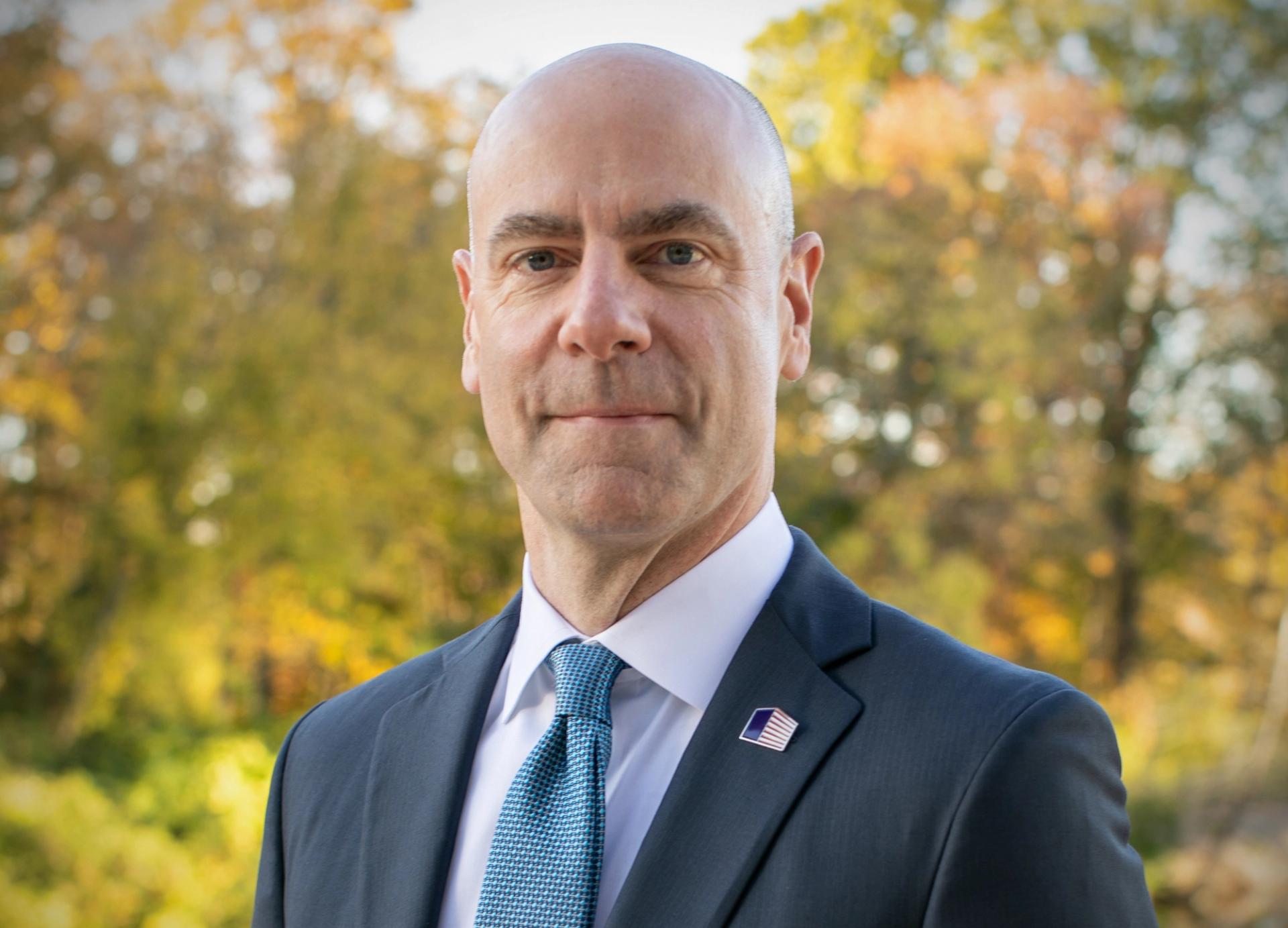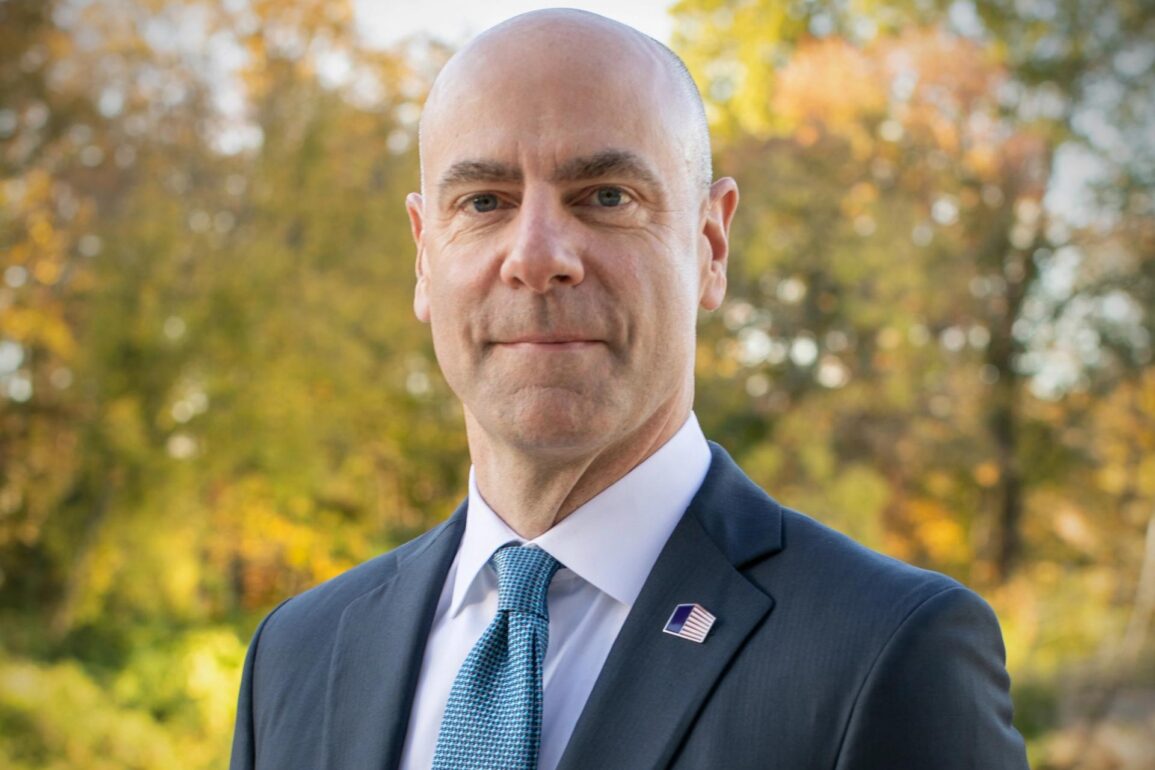
June 2019 was a different time. With social activism against incarcerations and Trump’s policies of separating immigrant families running high, several big banks including Bank of America, JPMorgan, and Wells Fargo said they would stop lending to private prisons. Progressive activists who had shown up that spring at Bank of America’s annual meeting and JPMorgan CEO Jamie Dimon’s home celebrated.
By the time Moynihan and his peers arrived in Davos for the World Economic Forum in January, the climate had changed radically. Conservative backlash had hit brands from Target to Budweiser to BlackRock, and swept Trump into office with a perceived mandate to roll back the progressive shift of the late 2010s and early 2020s.
Moynihan was among a group of CEOs chosen to ask a question to Trump, who was video-conferencing in from his inauguration week in Washington. The president answered Moynihan’s softball question with a sharp rebuke: “I hope you start opening your bank to conservatives, because many conservatives complain that the banks are not allowing them to do business within the bank. What you’re doing is wrong.”
His comments signal-boosted a movement in conservative circles that believes banks discriminate against them by closing their accounts without warning or explanation, cutting off their access to the financial system.
Among those decrying economic exile were venture capitalist Marc Andreessen, who told podcaster Joe Rogan in November that he knew 30 entrepreneurs who had been “de-banked,” including his partner, Ben Horowitz’s, dad. Andrew Torba, founder of the conservative social network Gab, posted a cancellation notice from his bank. The CEO of Anchorage Financial, a crypto outfit with sway in the Trump administration, told Congress in February that his firm had been cut off with 30 days notice. The Trump Organization sued Capital One this spring for closing its bank accounts after the Jan. 6 riots.
What critics call “de-banking,” banks call “de-risking.” It traces back to the aftermath of the 2008 financial crisis, when new regulations forced banks to stop lending to risky borrowers. Tighter rules around bribery and money laundering followed as the US sought to crack down on terrorism and corruption abroad. The Obama administration’s Operation Chokepoint cut off banking access to firearm dealers, payday lenders, and pawn shops.
The result was banks weighing reputational risk equally alongside traditional worries like losing money. Sometimes that means cutting off entities linked to foreign governments, especially those in dubious standing with Washington, or customers making unusual withdrawals. It also extends to crypto companies, adult entertainers, or any client whose source of income is unverified, legally gray, or unseemly. (Message boards are full of advice for OnlyFans entertainers trying to open bank accounts. The key, apparently, is checking the “other personal services” box when asked what the business does.)
It’s the latter category — legitimate businesses that are unpopular with a bank’s employees, shareholders, regulators, or customers — that are at the heart of the current fight over financial access. A key regulator, the Office of the Comptroller of the Currency, announced in March that it’s no longer considering reputational risk as part of bank supervision.
“These banks should be blind to politics,” said Hininger, who started as a midnight-shift guard at the maximum-security Leavenworth, Kansas federal prison and became CoreCivic’s CEO in 2009. “The questions they get to ask are: Are we a good credit risk? Are we in good standing with the government?”
For CoreCivic, getting cut off by big lenders had consequences. At the time, the company was structured as a real-estate investment trust, which required it to pass almost all of its income to shareholders. Like other REITs, it turned to banks for cash to grow. Bank of America had been the company’s go-to lender over the years, arranging loans, underwriting stock offerings, and pitching takeover ideas.
After being dropped by big lenders, CoreCivic cut its dividend and, in 2020, converted from a REIT into a corporation, which allowed it to conserve cash. The stock lost nearly half its value by the end of that year.
“We’re in a great position now,” Hininger said. CoreCivic’s stock, like those of other companies shareholders see benefitting from Trump’s agenda, have soared since November. “But that was a bad year. And it started with a decision… that I think was influenced by politics.”
Hininger — who gave $1.3 million to Trump and other Republicans in 2024, filings show — pressed his case to the president at a recent event at Mar-a-Lago. “This is a big, big issue for me personally, and we’re going to be doing more work on this,” Hininger recalls him saying.
This post was originally published on this site be sure to check out more of their content.









